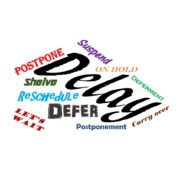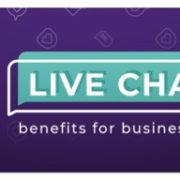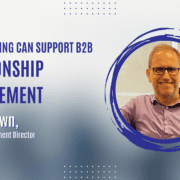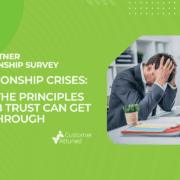How Equitable are your Broker and Intermediary Relationships?
BROKERS AND INTERMEDIARIES
“DEPENDENT or INTERDEPENDENT”
How Equitable are your Relationships?
The role of the broker / intermediary / agent within the financial services sector has many facets; objective arbiter, solution shaper, solution provider, customer champion, outsourced provision, ‘one stop shop’ and sector expertise plus others too numerous to mention.
It does pose a dilemma for many financial services providers as they wrestle with the dynamics of the broker / intermediated relationship. How do we gain our optimum level of share of mind / share of voice? More importantly, how can we re-calibrate the relationship if it’s out of balance ~ from one of dependency to inter-dependency.
Within this article we draw upon our experiences within the sector, good practice from others and academic research.
Does this sound familiar?
Your relationship appears to be based upon historic personal relationships. They place quite a lot of business with you, however it can at times feel unpredictable like its being done out of benevolence and reciprocal favours. They often ask you to help them with a particularly challenging piece of business but too often you don’t seem to get the favours done in return. They regularly look for increased commissions or improved payment terms but you sometimes wonder where you are getting anything in return. However, you don’t want to upset them as you don’t want them taking their good business and placing it with a competitor. As a result, the commercial platform is consistently being challenged and with you continually fighting to protect the slide towards commoditisation. They make it plain; you aren’t the only provider and rely on your network to maintain your position.
If this sounds vaguely familiar then your relationship is in a state of dependency.
Or does it resemble the following?
You provide strategic insight that drives mutual value within the relationship. Much of the activity is taken jointly and co-created across a number of contacts from both sides. The relationship is based on foresight, intuition and empathy with both sides predicting future issues and developing solutions before they become a problem. In essence, one can think for the other and you jointly develop and agree plans.
Sales people are real experts empowered to develop the relationship and mutual value acting as the glue to enable joint action and mutual investments to take place e.g. jointly developed propositions, provision of training, enhanced commission deals in return for greater share of target business, etc. You are the preferred supplier because you are ‘easy to do business with’ do what you say, consistently and reliably. The commercial platform, strategic value add insight and approach means they place quite a lot of business with you, it’s consistent and plannable.
If some of this sounds familiar then you are operating an inter-dependent relationship to varying degrees of interdependence.
So, having identified where you are, what could you do about it?
How do you change the dynamics of a dependent relationship and hold onto and grow an inter-dependent one?
A key strategic question, is it worth it and is it possible?
So, before you embark on breaking out of dependency stop and ask yourself these two questions. If I invest into the development of this relationship does the potential exist to make a worthwhile return on investment? Does this broker / intermediary have what it’s got to also make the move?
The first stage of our approach is in the form of an over-riding umbrella framework;
Why bother is it worth it? Yes from two clear angles,
- Transaction cost & cost to serve come down, as it’s less costly to do business with people you trust than those you don’t.
- They will place more of the business you really want to have in line with your appetite and your share of their total business will increase.
How?
The relationship revolves around a balance of; trust, inter-dependence and equitability. If aligned and in balance the relationship has longevity.
However, it is possible to effectively plan the development of an inter-dependent relationship with an intermediary that you think is worth the investment and open to this approach.
We then apply a development model specifically for intermediated relationships. This builds upon the work undertaken by Akbar Zaheer and N. Venkatraman (1995), our experience and client work.
NPD = New Product Development
OPD = Old Product Development
This model allows and provides the basis to tailor and co-create elements specifically for the context and relationship situation.
We work together to develop the approach within three core areas;
- Culture, Values and Strategy ~ understanding and alignment.
- Behaviours, skills, capability and competencies
- Process, procedures, portfolio, mutual investment, approach to risk, joint actions, size of book / policies written, training, expertise and commercial platform.
Developed in a planned and structured approach it is possible to positively develop and influence an intermediated relationship to increase, loyalty, share of business and the business written. We have also noticed the quality and value of business written increase as the three elements above come together.
Extending and deepening the relationship can have significant benefits if brokers and intermediaries represent a key route to market, channel or hybrid customer management approach. It develops additional access for the relationship other than the price and provides a platform of trust that engenders loyalty, increasing share of mind and share of voice.
If you would like to know more on this subject please contact Alan
- It Takes Two To Tango - May 20, 2025
- Leveraging MBTI to build successful B2B relationships - October 25, 2024
- Making MBTI Work For Sales Teams - September 25, 2024



